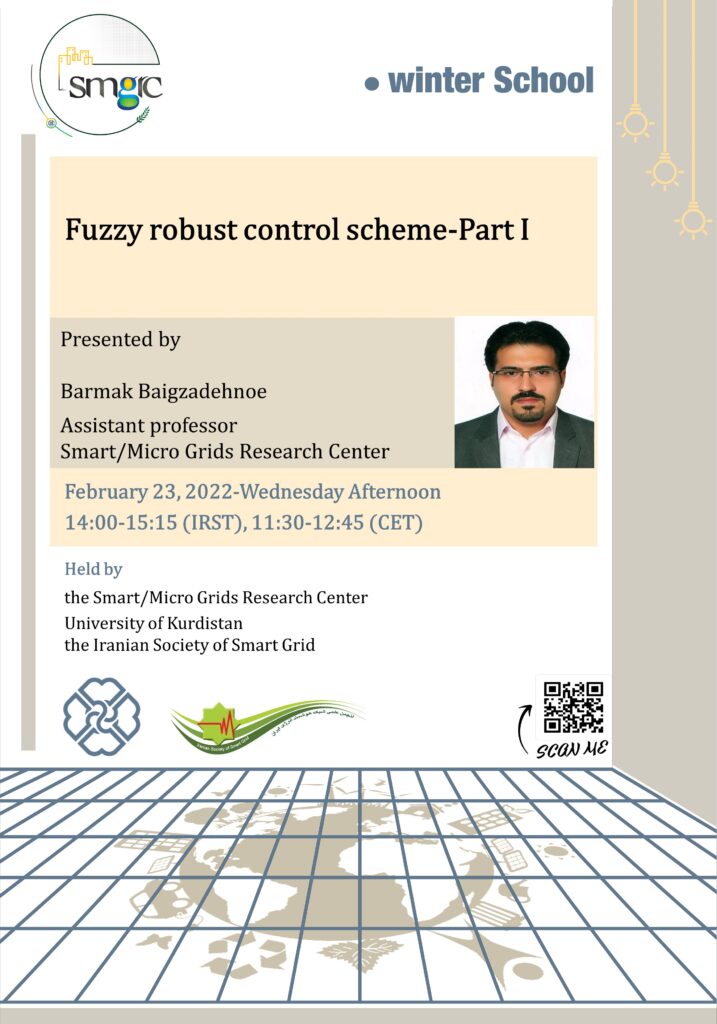
About the Presenter
Barmak Baigzadehnoe was born in Sari, Iran, in 1980. He received the B.Sc. degree in control engineering from Tehran University, Tehran, Iran in 2004, the M.Sc. degree in control engineering from K.N. Toosi University of Technology, Tehran, Iran in 2007, and the Ph.D. degree in control engineering from the Babol Noshirvani University of Technology, Iran, in 2018. He is an assistant professor of control engineering in the engineering faculty of Kurdistan University since 2021. His research interests are adaptive and nonlinear control, large-scale systems, fuzzy logic systems, and intelligent methods
General Information:
This course will be useful for …
The aims of this course are …
Where and how you can use this knowledge?
In the early 1970s, fuzzy systems and fuzzy control theories added a new dimension to control systems engineering. From its beginnings as mostly heuristic and somewhat ad hoc, more recent and rigorous approaches to fuzzy control theory have helped make it an integral part of modern control theory and produced many exciting results. Fuzzy logic control is a methodology bridging artificial intelligence and traditional control theory. Fuzzy Logic can address complex control problems, such as robotic arm movement, chemical or manufacturing process control, antiskid braking systems, or automobile transmission control with more precision and accuracy, in many cases, than traditional control techniques. Fuzzy control is a methodology for expressing operational laws of a system in linguistic terms instead of mathematical equations
Fuzzy logic imitates the logic of human thought, which is much less rigid than the calculations computers generally perform. The Fuzzy Logic methodology comprises three phases. 1) The russification phase is a transformation of input variables to linguistic ones. 2) The fuzzy inference maps input linguistic variables onto output linguistic variables on the base of a system of fuzzy rules of the type “IF A THEN B”. 3) The defuzzification phase converts the weighted values of output linguistic variables obtained as a result of fuzzy inference to output variables.
Robust fuzzy control systems have been widely used for automatic control of complex processes. This type of control system, being a qualitatively new class of control systems, proved to be very effective in the control of complex nonlinear uncertain dynamic objects for which the classical deterministic and stochastic controllers are unable to operate. A fuzzy controller is a knowledge-based controller in which fuzzy logic is used to represent knowledge and logical inference. The aim of this course is to introduce the most well-known fuzzy control methods such as Takagi-Sugeno fuzzy controller and fuzzy supervisory control scheme which have had the greatest success and acclaim. Moreover, this course will be useful for power and control engineers.